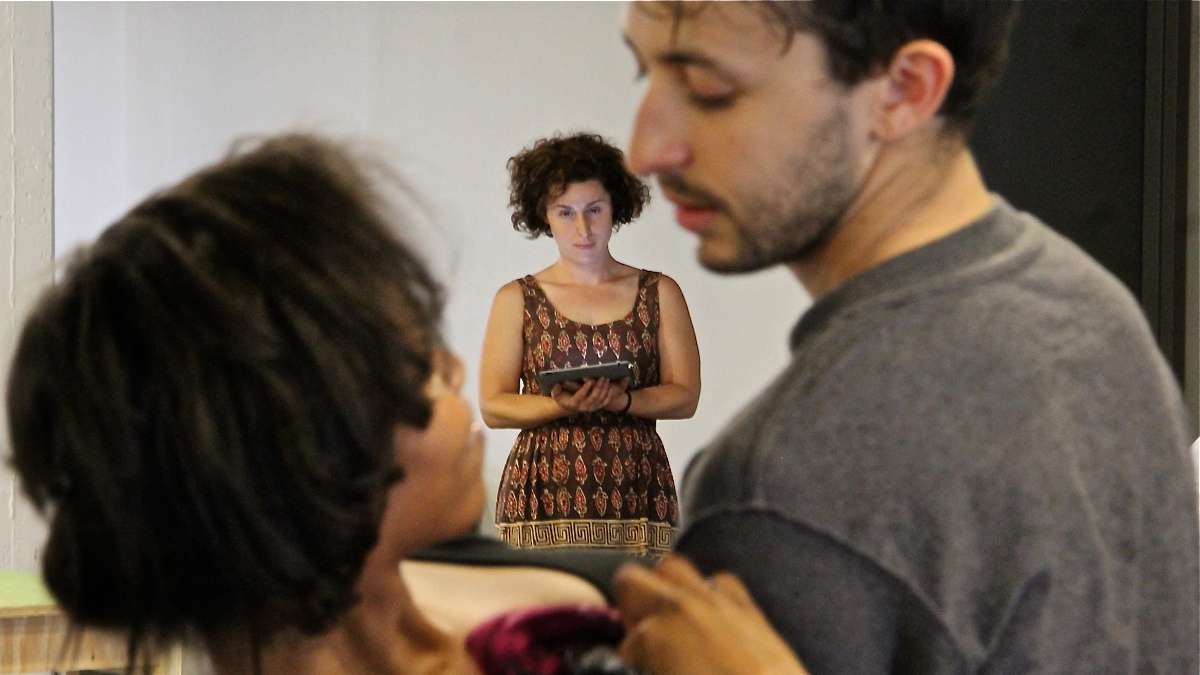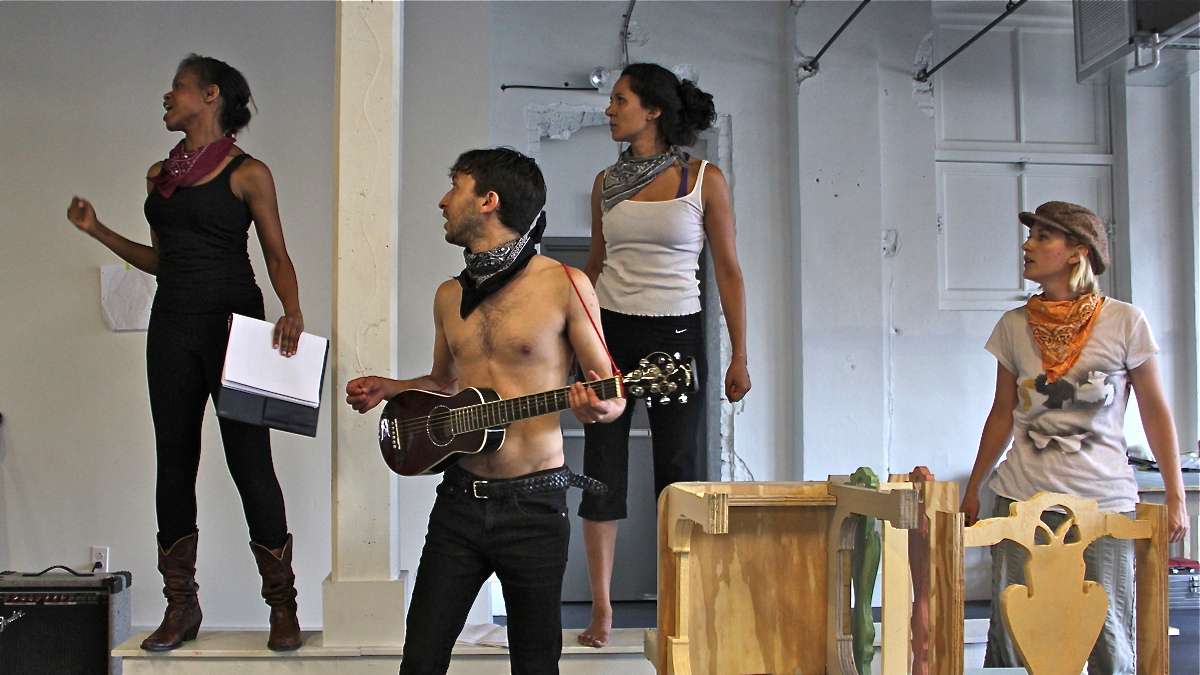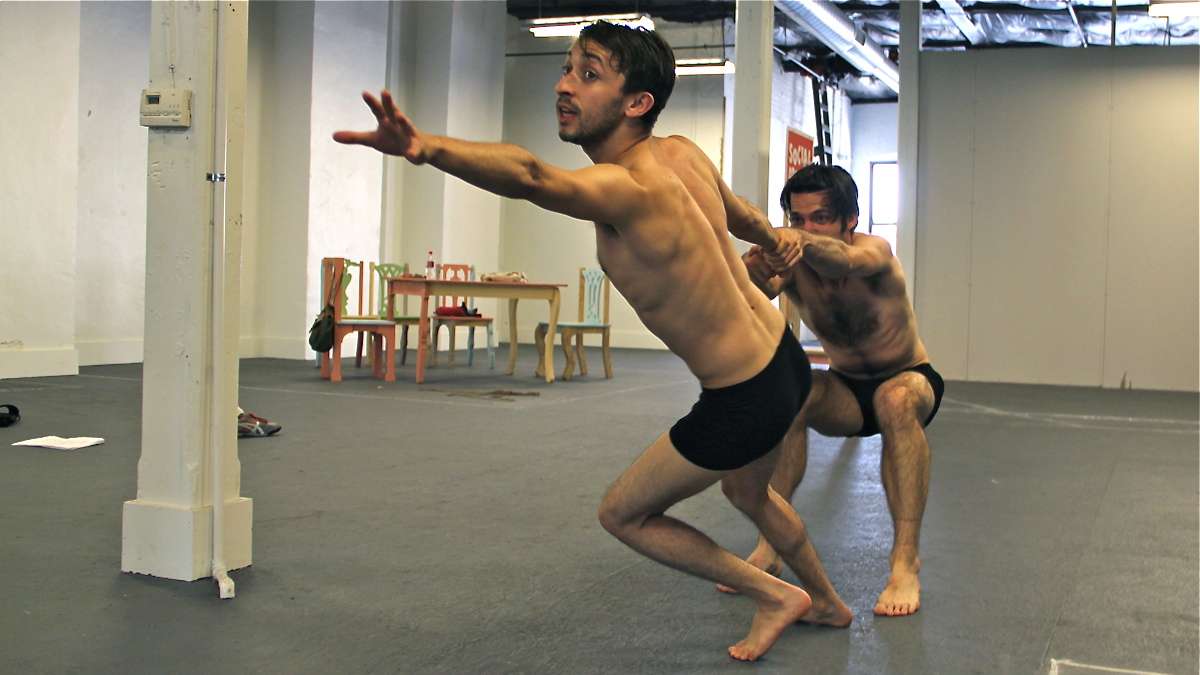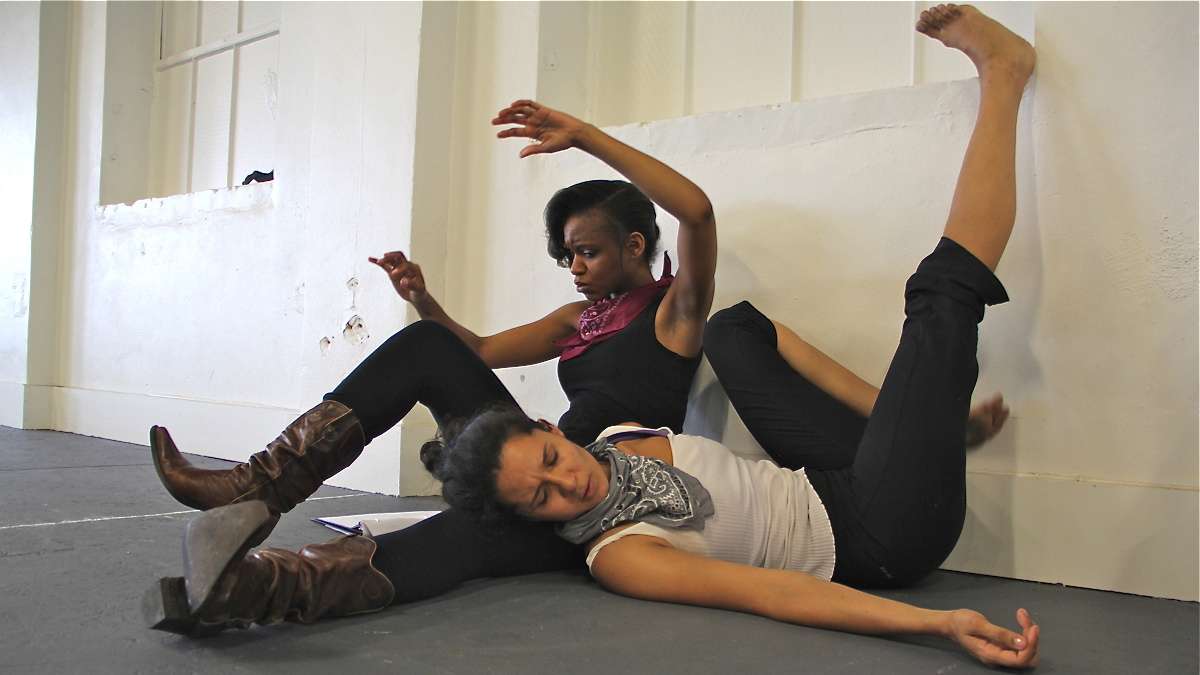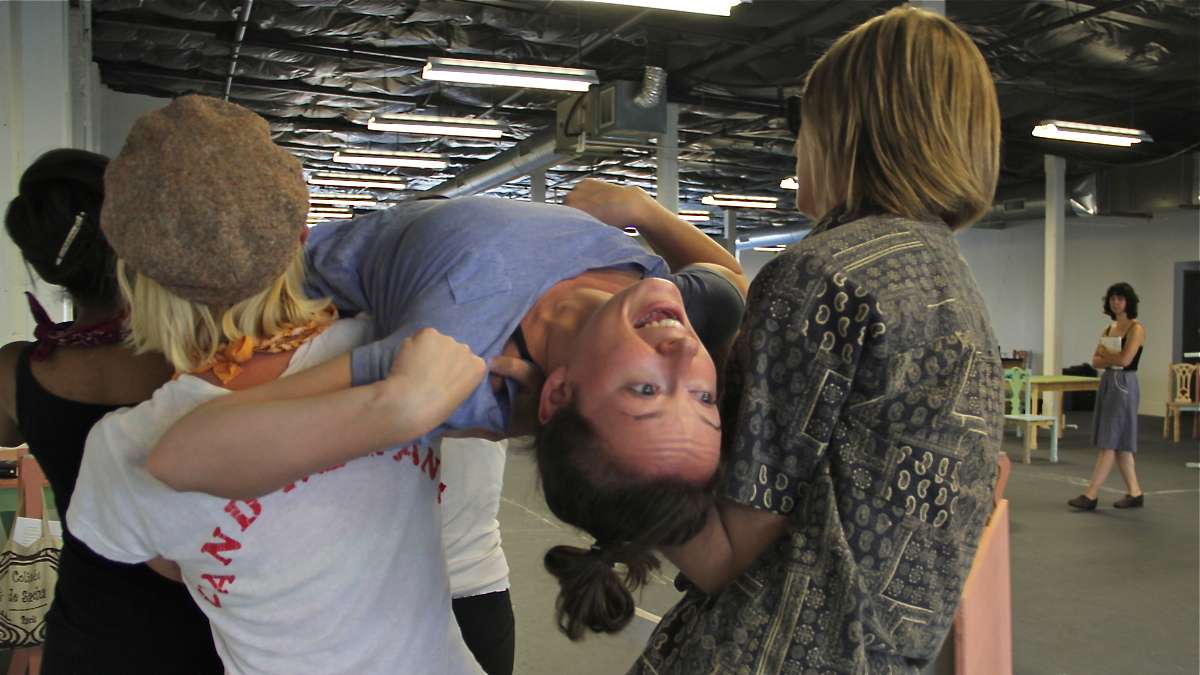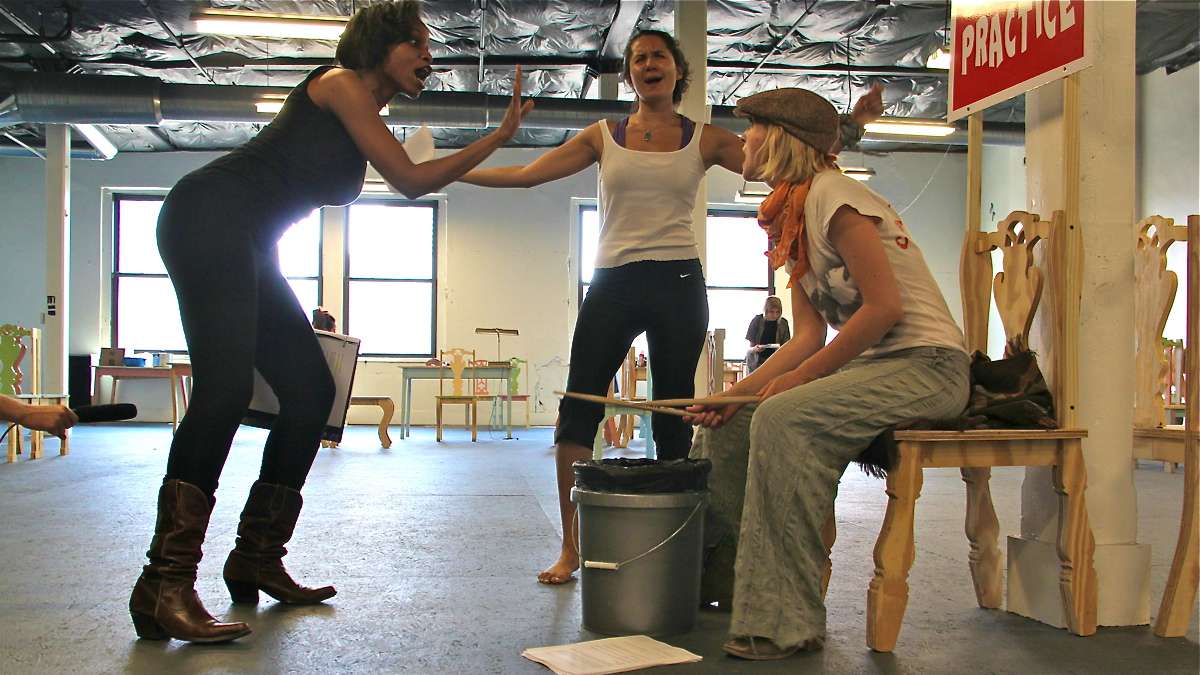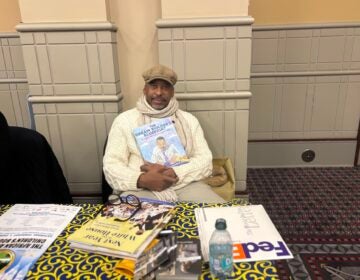From Pussy Riot to Susan B. Anthony, Philly production fuses eight stories of protest
Pussy Riot, the Russian activist collective whose members were jailed following a guerrilla performance in a Moscow church, is now the inspiration of an experimental theater production in Philadelphia.
“We Are Bandits,” by the theater company Applied Mechanics, has no stage and no rows of seats. Audiences who come to a free performance on the third floor of the Asian Arts Initiative in Chinatown walk among actors however they wish, following whichever dialogue and storylines they can.
Eight stories are performed simultaneously, each some form of protest for social justice — ranging from intimate changes of heart to loud street demonstrations. The action is sometimes scatter-shot across the room; other times all the actors congress in a unified scene.
“The two words that come to mind are cacophony and catharsis,” said Maria Shaplin, co-founder of Applied Mechanics and designer of the show. “Both are present and in shows and in protests. It’s overstimulating, difficult to navigate within — but also extremely satisfying.”
Shaplin and director Rebecca Wright, her partner in the company, both came up during the Riot Grrl punk movement of the 1990s, when bands including Bikini Kill and Sleater-Kinney broke open (once again) the barriers of what females were able to accomplish on stage and in the streets.
“We Are Bandits” is directly inspired by the more recent Pussy Riot, the punk collective that drew worldwide attention in 2012 for breaking into a Russian Orthodox church in Moscow to perform a somewhat choreographed protest of the church’s ties to President Vladimir Putin. They were arrested, tried, and imprisoned for hooliganism.
“We Are Bandits” is not the Pussy Riot story; one of the eight stories is loosely based on the band. The other stories are inspired by female activists whom Wright and Shaplin spent a year researching, including obscure anarchists such as Philadelphia’s own Voltairine de Cleyre, and better known figures Emma Goldman and Susan B. Anthony.
“I feel all I knew about Susan B. Anthony was she was a suffragette, and it kind of ended there,” said Wright. “I didn’t know how much time she spent in jail. I didn’t know about hunger strikes. She was such a powerful activist, and it’s just footnoted.”
Applied Mechanics often makes theater designed to be difficult to navigate, with multiple actions happening simultaneously. Its “Vainglorious” (Philly Fringe, 2012) featured 26 performers acting out the aftermath of the French Revolution.
Although protesting circumstances unique to Russia, the spirit of Pussy Riot fit into Applied Mechanics’ methods and ideologies.
“It’s using art to speak out against political realities without forcing yourself to have a single message, or all the answers, or a clearly drawn-out plan,” said Wright. “The old left really wants that for political action, but one thing that Pussy Riot is doing — and Occupy is doing — is just saying “No!” to how things are … and allowing that to be a joyful, celebratory cry.”
The show is not complete chaos. There is a spatial composition to the action in the room, and the audience is not cast adrift into the theatrical rapids.
“It’s taxing. You’re doing more work than you would just sitting and watching a story. So we create quieter, calmer moments,” said Wright.
Performances begin Saturday and continue through July 31.
WHYY is your source for fact-based, in-depth journalism and information. As a nonprofit organization, we rely on financial support from readers like you. Please give today.



